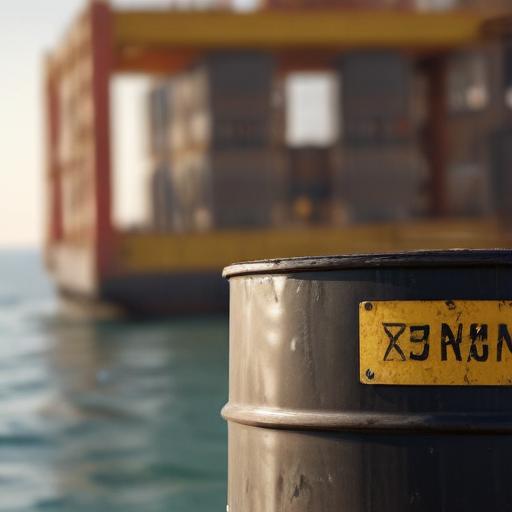The recent escalation of hostilities involving Iran, Israel, and the United States has created significant uncertainty in global oil markets. Oil futures have risen approximately 10% since these tensions began, driven by fears that Iran may retaliate by disrupting shipping through the strategically crucial Strait of Hormuz.
This narrow waterway is essential for global oil transportation, with about 20 million barrels—approximately one-fifth of the world’s daily oil production—passing through it each day, according to the U.S. Energy Information Administration (EIA). Recent U.S. airstrikes on Iranian nuclear facilities prompted a spike in Brent crude prices, which briefly exceeded $80 per barrel, marking a notable increase since January.
Despite this surge, oil prices fluctuated during the Asian trading session, with Brent trading down to $76.49 and West Texas Intermediate at $73.38, illustrating the market’s sensitivity to geopolitical developments. The future trajectory of oil prices hinges largely on Iran’s next steps, particularly concerning the Strait of Hormuz. Analysts warn that any disruption could push prices significantly higher, with some suggesting they could soar towards $100 per barrel.
Commentary from Iranian officials has heightened these concerns, with calls to close the Strait emerging from prominent figures close to the Iranian leadership. They emphasize that control over this passage grants Iran the capability to significantly impact oil markets and global inflation.
However, some experts view the likelihood of Iran blocking the Strait as minimal due to the potential fallout, including worsening relations with neighboring oil-producing countries and jeopardizing its critical economic ties with key markets like China. The presence of a strengthened U.S. naval fleet in the region is also seen as a significant deterrent.
The impact of any potential closure would disproportionately affect Asia, where a vast majority of imported oil and liquefied natural gas passes through this vital route. Domestic reassurances have come from countries like India, which has diversified its supply sources and stated its capacity to maintain energy security despite the rising tensions.
China has echoed these sentiments, urging the international community to promote de-escalation and maintain trade stability in the Persian Gulf, recognizing the regional importance for broader global economic wellbeing.
As the situation develops, maintaining peace and open channels for oil transport will be pivotal in stabilizing energy markets and supporting economic stability for countries reliant on these critical supplies.
